Germany flood threat heads north towards Dresden
- Published
German Chancellor Angela Merkel visited the worst-affected regions on Tuesday, flying over Bavaria, Saxony and Thuringia by helicopter
Thousands of German troops have been sent to help flood-hit regions as rising rivers threaten more cities.
Surging waters that have already caused extensive damage across central Europe are moving north and east along rivers including the Elbe and Danube.
German Chancellor Angela Merkel has visited areas already hit by the deluge and promised 100m euros (£78m; $130m) in emergency aid.
Meanwhile river levels in the Czech capital Prague have begun to fall.
Large areas of suburban Prague were flooded but metal barriers protecting the historic city centre held as the floods peaked and the high waters moved north towards Germany.
Around 4,000 German troops have been deployed in four states, the military said, reinforcing dykes with sandbags and providing help to thousands of people forced to leave their homes.
The latest cities to be hit include Meissen on the Elbe. Nearby Dresden is preparing for water levels 5m higher than normal.
'Historic proportions'
Officials in Saxony - home to both Meissen and Dresden - have warned that rivers could rise even higher than in the record floods of 2002, when both cities were devastated.
Chancellor Merkel toured some of the worst-hit areas on Tuesday, flying over Bavaria, Saxony and Thuringia by helicopter.
In the stricken Bavarian city of Passau - where waters reached a level not seen in 500 years - she called the floods "an event of historic proportions" and promised 100m euros in emergency aid, half of it from the federal government
"I spoke to residents who are already busy with clean-up work and I am aware that it will take weeks. The damage and loss of income are a long-term problem and therefore our support will not dwindle," she said.
Across Europe at least 12 people have died as a result of the floods. As well as Germany and the Czech Republic, Austria, Switzerland, Poland, Slovakia and Hungary have been affected.
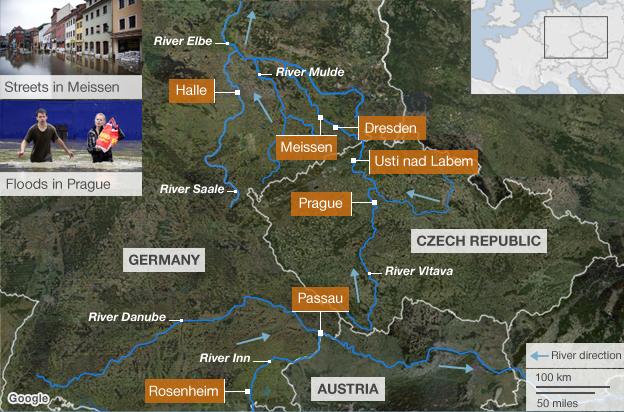
Main roads in many areas have been closed and rail services cut. Thousands of homes are without power.
Hungary has declared a state of emergency as the surging waters move down the River Danube, with the peak expected on Thursday.
The Hungarian capital Budapest and the Slovakian capital Bratislava - both on the Danube - are on alert and flood defences are being reinforced.
Some Czech towns are already underwater and there are warnings that defences could be breached within hours
In the Czech Republic, a nationwide state of emergency is still in force. Water levels were expected to peak in the north later on Tuesday.
As a precaution, Prague's metro system and central sewage treatment plant were closed, metal flood defences were erected and sandbags built up along the banks of the Vltava.
In Austria, the meteorological service said two months of rain had fallen in just two days.
Shipping was halted on parts of the Danube and Rhine in Germany, and the entire length of the Danube in Austria. The rivers are used heavily to transport commodities such as grain and coal.
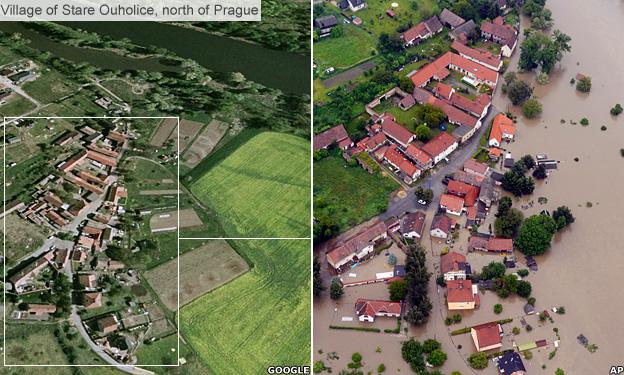
This image shows the impact of flooding on the Czech village of Stare Ouhoulice
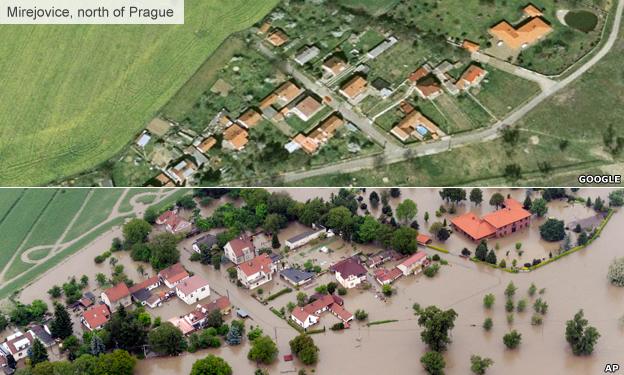
Aerial view of the swollen Vltava river, which swamped the village of Mirejovice, north of Prague
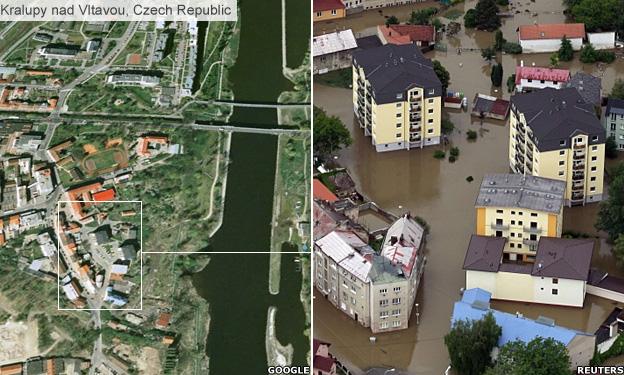
The city of Kralupny nad Vltavou, near Prague, was also under water
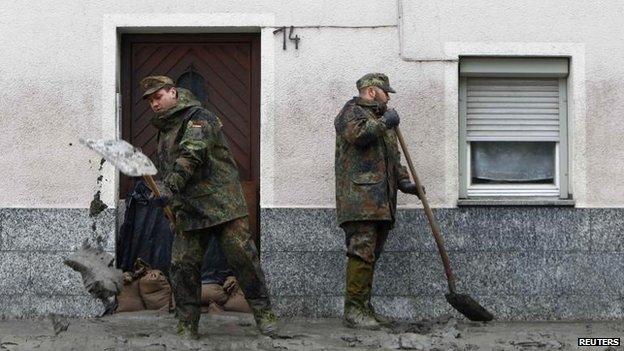
The German army is helping to clear up the mess left behind as floodwaters recede from Passau
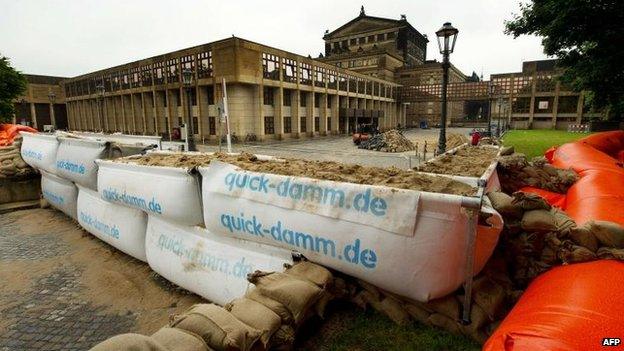
The city of Dresden, which was badly damaged by flooding in 2002, has reinforced its defences as water levels on the River Elbe rise
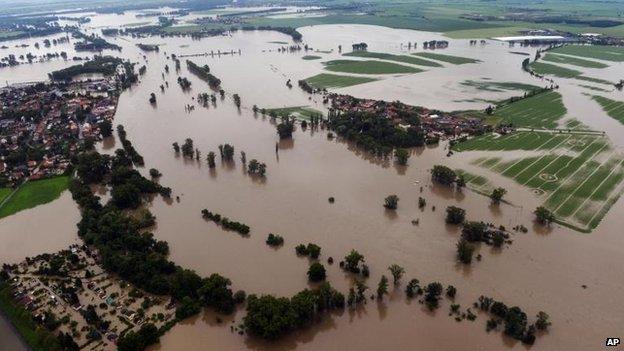
The River Vltava burst its banks in the area around Melnik, 40km (25 miles) north of Prague
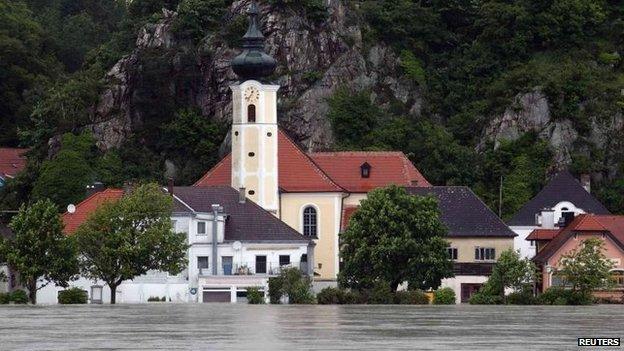
The River Danube is also carrying floodwaters: the village of Marbach, 90km west of Vienna, has been partially submerged
- Published4 June 2013
- Published4 June 2013
- Published3 June 2013
- Published18 May 2010